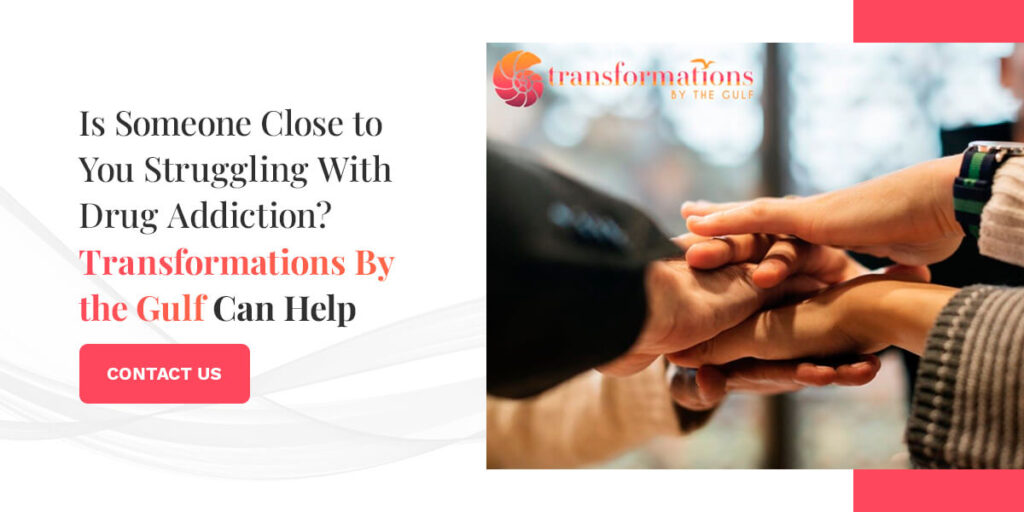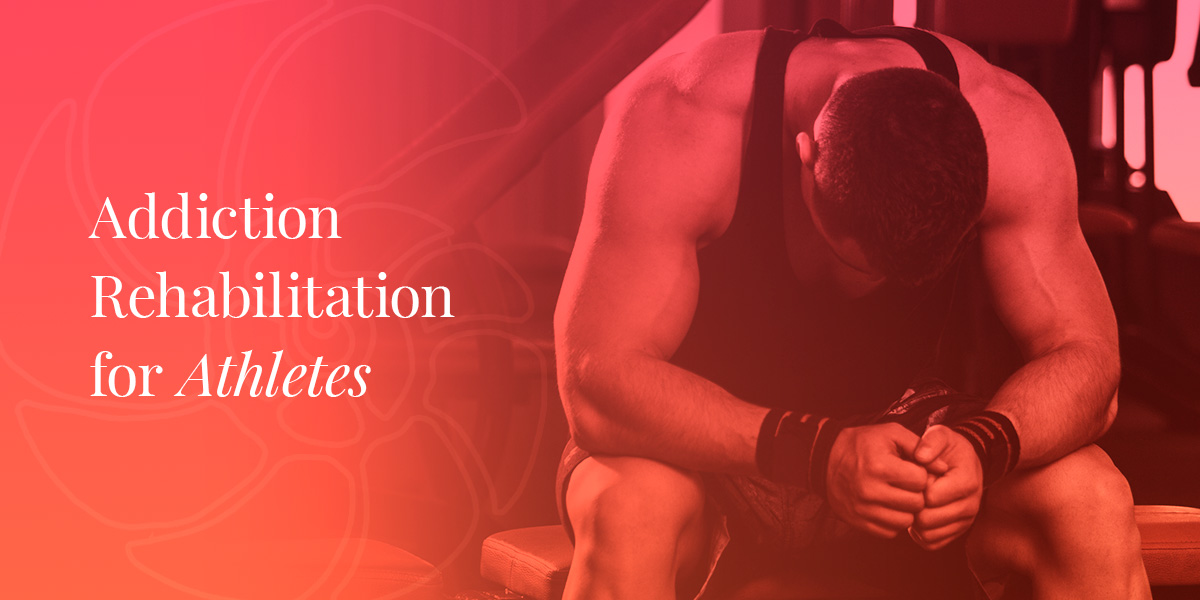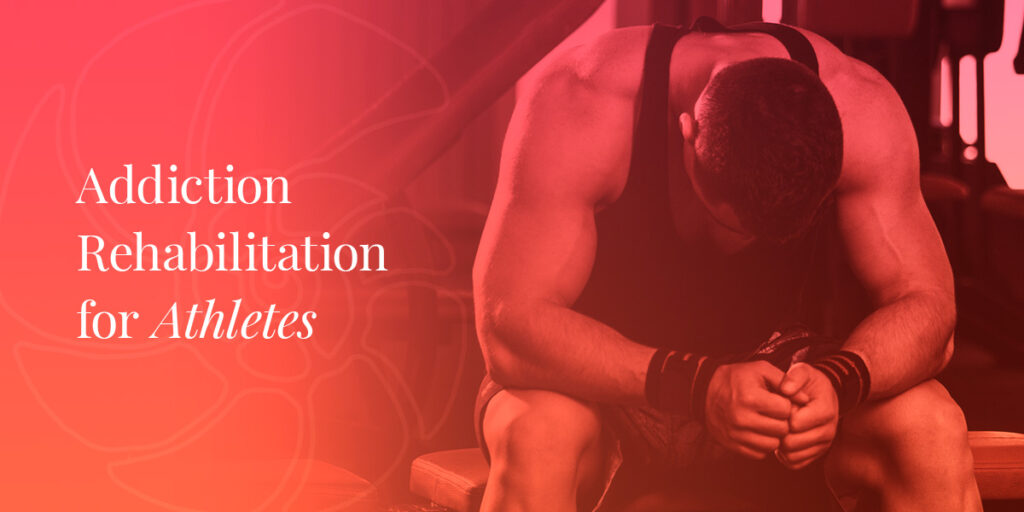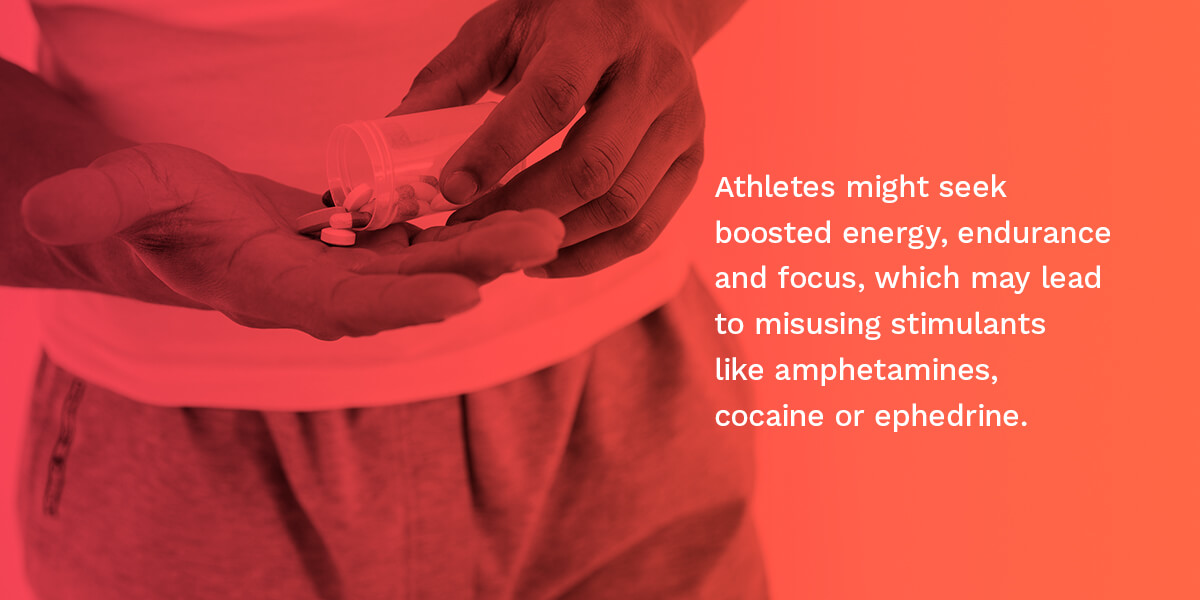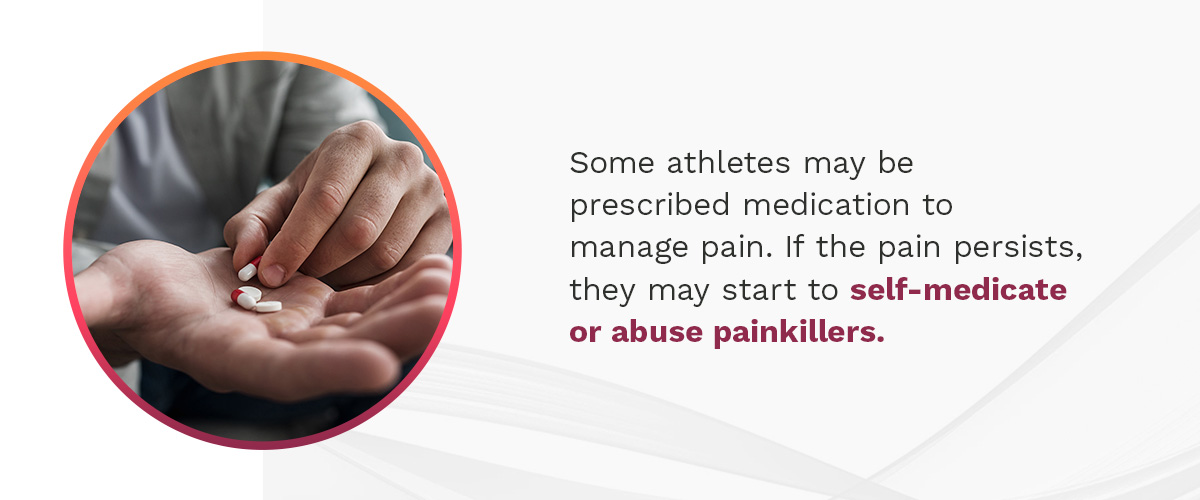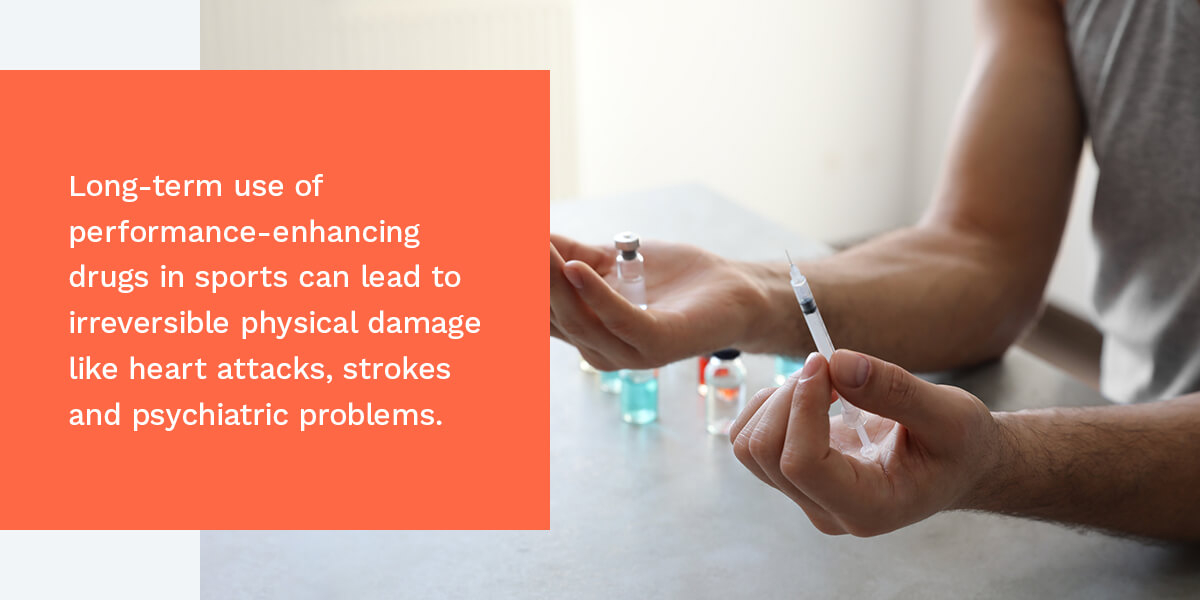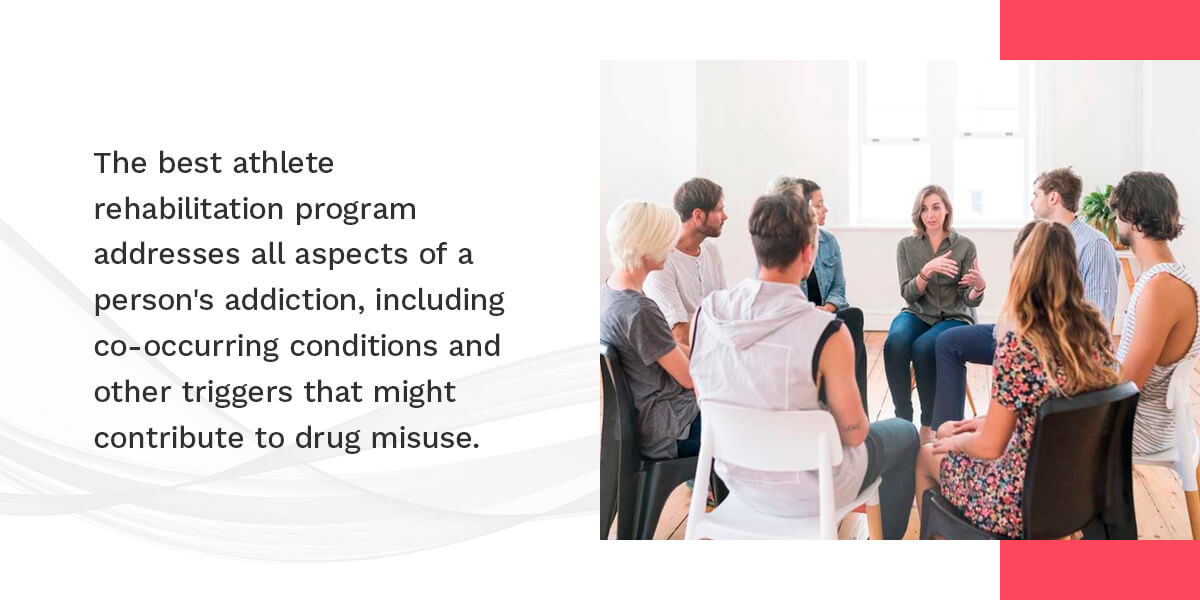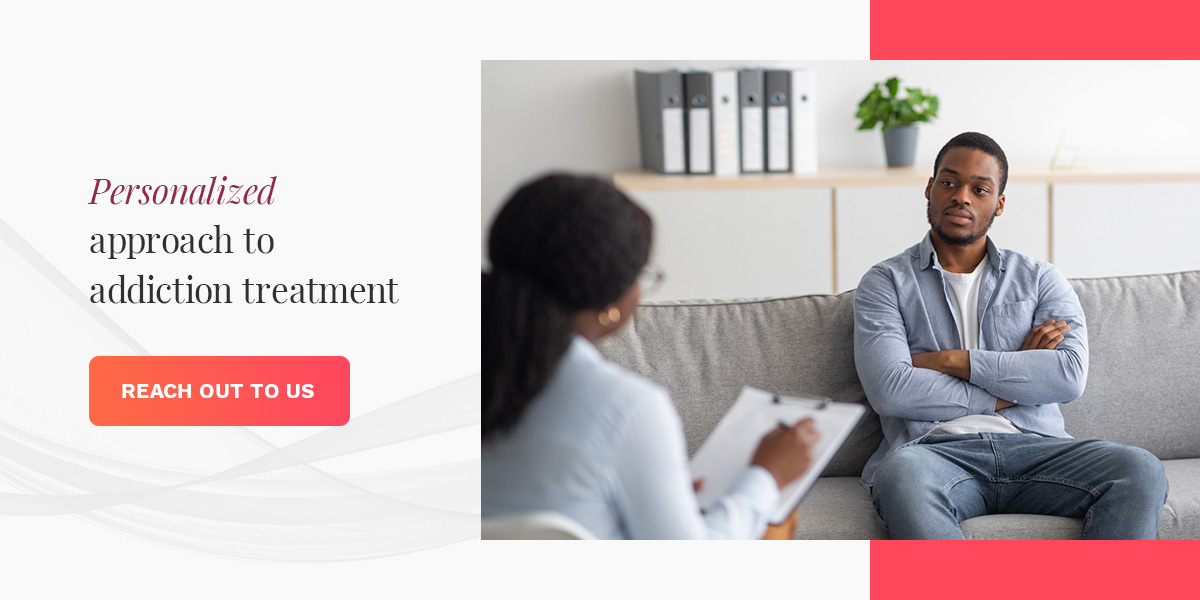Learning to Live Sober with Transformations
Learning to Live Sober with Transformations
How Addiction Starts
Recovery Process
- Free From Dependency: One of the biggest pros of living a sober life is the fact that you are free from dependency. If you’ve lived a life in addiction, you’ve lived a life that is centered around substances. Addicts become dependent on a particular substance in order to function normally or comfortably in life. Once a person is able to kick substance abuse, they can start to learn to be more independent. Becoming independent is a key aspect of growing up and becoming an adult. Once you learn how to be independent from something, you can start to get in touch with your true self.
-
Get Back In Touch With Yourself: If you have faced addiction previously or are currently battling with it, chances are you have been told, "You've changed." This can be a difficult statement to hear from a close friend or loved one, but it is likely true. Addiction can transform individuals into someone they never expected to be. Substance abuse and dependencies can lead a person to become more self-absorbed, illogical, and unkind. Regardless of your pre-addiction self, your chemically reliant self does not reflect the authentic you. Upon breaking free from substance abuse, you can reconnect with your former self before these destructive behaviors took hold. Sobriety enables individuals to recognize the path to becoming a better, happier, and more balanced individual.
-
Repair Broken Relationships: If addiction is a challenge for you, it is probable that your actions have caused distress to those in your life. Addiction frequently results in strained relationships with loved ones, including friends, family, and partners. It is typical for those close to you to experience pain when someone they care for is struggling with addiction. Individuals battling addiction may employ manipulation, deceit, or even harm against their loved ones as a result of their dependence on substances. It is crucial to understand that these behaviors are influenced by the addiction and not representative of the person's true character. Conquering addiction enables clearer thinking and reflection on past actions. This newfound clarity can facilitate the acknowledgment of past mistakes and the initiation of efforts to repair damaged relationships.
-
Financial Stability: If addiction is a challenge for you, it is probable that your actions have caused distress to those in your life. Addiction frequently results in strained relationships with loved ones, including friends, family, and partners. It is typical for those close to you to experience pain when someone they care for is struggling with addiction. Individuals battling addiction may employ manipulation, deceit, or even harm against their loved ones as a result of their dependence on substances. It is crucial to understand that these behaviors are influenced by the addiction and not representative of the person's true character. Conquering addiction enables clearer thinking and reflection on past actions. This newfound clarity can facilitate the acknowledgment of past mistakes and the initiation of efforts to repair damaged relationships.
Do You Need Drug or Alcohol Rehab in Florida?
Addiction can have a stronghold on your life. The right rehab program can be your saving grace. At Transformations by the Gulf, we aim to make treatment as easy, comfortable and effective as possible. Through a holistic approach, we help you regain your life.
Our facilities are situated near St. Pete Beach, which means your recovery takes place in a serene location that fosters a natural sense of well-being. To learn more about cannabis treatment for yourself or a loved one, reach out today.
Seeking Treatment with Transformations by the Gulf?
If you or a loved one needs treatment and rehabilitation for substance use, Transformations by the Gulf can help.
Transformations by the Gulf offers individualistic and holistic recovery services. We designed our inpatient and outpatient programs to treat individuals based on biological, psychological, familial and social needs.
Our residential homes and treatment facilities are near the beach and offer a comfortable setting for rehabilitation. If you or a loved one needs help, contact Transformations By The Gulf to learn more about our recovery services.
If you are ready to start planning your treatment process, give us a call. (727)498-6498
What a Day is Like in Our Treatment Facility.
Why Transformations by the Gulf?
Substance Use Reaching Historic Highs
Marijuana and hallucinogen consumption, as well as binge drinking, have reached record levels among adults aged 35 to 50.
In 2022, adults aged 35 to 50 saw record highs in their past-year marijuana and hallucinogen use, continuing the upward trend observed in recent years. Meanwhile, individuals aged 19 to 30 experienced significant increases in marijuana and hallucinogen use, as well as marijuana and nicotine vaping, reaching historic levels for this age group. The annual Monitoring the Future (MTF) panel study, which surveys substance use behaviors and attitudes of adults between 19 and 60, revealed these findings. The study is funded by the National Institute on Drug Abuse (NIDA) and conducted by researchers at the University of Michigan's Institute for Social Research in Ann Arbor.
Binge drinking among younger adults has decreased over the last decade. However, adults aged 35 to 50 in 2022 showed the highest levels of binge drinking ever recorded for this age group, indicating a notable increase over the past year, five years, and ten years.
“Substance use is not limited to teens and young adults, and these data help us understand how people use drugs across the lifespan,” said NIDA director, Nora Volkow, M.D. “Understanding these trends is a first step, and it is crucial that research continues to illuminate how substance use, and related health impacts may change over time. We want to ensure that people from the earliest to the latest stages in adulthood are equipped with up-to-date knowledge to help inform decisions related to substance use.”
The MTF study has been surveying substance use behaviors and attitudes among a nationally representative group of eighth, 10th, and 12th graders every year since 1975. Additionally, a subset of participants is part of a longitudinal panel study that includes follow-up surveys after 12th grade to monitor their drug use into adulthood. These participants are tracked every two years until they reach the age of 30, and then every five years thereafter, with some of the oldest participants now in their 60s.
The 2022 survey of adults gathered data through online and paper surveys between April and October 2022. The researchers categorized the data into two age brackets for trend analysis: 19-30 years old and 35-50 years old. Important discoveries comprise:
Marijuana Use: Among adults aged 19 to 30, the rates of past-year marijuana usage and daily marijuana consumption hit record highs in the recent study. Approximately 44% of participants surveyed in 2022 reported past-year usage, marking an increase from 35% in 2017 and 28% in 2012. Daily marijuana consumption also peaked in 2022 at 11%, surpassing the rates from 2017 (8%) and 2012 (6%).
Reports of past-year marijuana use among adults aged 35 to 50 also reached an all-time high in 2022 (28%). This had increased from the previous year (25% in 2021) and five years ago (17% in 2017), and more than doubled compared to 10 years ago (13% in 2012).
Hallucinogen Use: In the 19 to 30 age group, 8% of adults reported using hallucinogens in the past year, which is notably higher than the rates from five years ago (5% in 2017) and ten years ago (3% in 2012). Common hallucinogens mentioned by participants were LSD, MDMA, mescaline, peyote, shrooms or psilocybin, and PCP. The majority of recent hallucinogen use in 2022 among adults in this age category involved substances other than LSD (7% in 2022).
Past-year hallucinogen use reached historically high prevalence among adults 35 to 50 years old, reported by 4% in 2022. The prevalence reported in 2022 was also a substantial increase compared to the year before (2% in 2021) and five and 10 years ago (no greater than 1% in both 2017 and 2012).
Alcohol Use: In the last ten years, alcohol consumption among adults aged 19 to 30 has decreased, including past-month use, daily drinking, and binge drinking. However, there was a slight increase in past-year drinking for this age group in 2022 (84%) compared to 2017 (82%).
Alcohol use among adults aged 35 to 50 has shown a gradual increase over the past 10 years, with past-year drinking increasing from 83% in 2012 to 85% in 2022. Binge drinking in this older group reached its highest levels (29% in 2022), and increased over the past year, five years, and 10 years (26% in 2021; 25% in 2017; 23% in 2012).
The research indicated a 10-year decrease in the past-year consumption of cigarettes, sedatives, and non-medical use of opioid medications for both adult age brackets. Past-year usage of amphetamines demonstrated a 10-year decline among 19- to 30-year-olds and a 10-year rise among 35- to 50-year-olds. The report also covers drug use patterns among college and non-college young adults, demographic subgroups, and other relevant data.
“The value of surveys such as MTF is to show us how drug use trends evolve over decades and across development – from adolescence through adulthood,” said Megan Patrick, Ph.D., a research professor at the University of Michigan and principal investigator of the MTF panel study. “Behaviors and public perception of drug use can shift rapidly, based on drug availability and other factors. It’s important to track this so that public health professionals and communities can be prepared to respond.”
Results from the related 2022 MTF study of substance use behaviors and related attitudes among teens in the United States was released in December 2022, and 2023 results are upcoming in December 2023.
Do You Need Drug or Alcohol Rehab in Florida?
Addiction can have a stronghold on your life. The right rehab program can be your saving grace. At Transformations by the Gulf, we aim to make treatment as easy, comfortable and effective as possible. Through a holistic approach, we help you regain your life.
Our facilities are situated near St. Pete Beach, which means your recovery takes place in a serene location that fosters a natural sense of well-being. To learn more about cannabis treatment for yourself or a loved one, reach out today.
Seeking Treatment with Transformations by the Gulf?
If you or a loved one needs treatment and rehabilitation for substance use, Transformations by the Gulf can help.
Transformations by the Gulf offers individualistic and holistic recovery services. We designed our inpatient and outpatient programs to treat individuals based on biological, psychological, familial and social needs.
Our residential homes and treatment facilities are near the beach and offer a comfortable setting for rehabilitation. If you or a loved one needs help, contact Transformations By The Gulf to learn more about our recovery services.
If you are ready to start planning your treatment process, give us a call. (727)498-6498
What a Day is Like in Our Treatment Facility.
Why Transformations by the Gulf?
First Time Seeking Drug or Alcohol Rehab?
First Time Seeking Drug or Alcohol Rehab?
Enrolling in a residential or inpatient addiction treatment program may cause some anxiety when unsure of what to anticipate. These programs offer around-the-clock care and assistance. They entail residing at the facility, necessitating a break from daily commitments to concentrate on addressing substance use disorder. The length of treatment and stay duration are determined by factors such as the seriousness of the disorder, medical requirements, and insurance provisions.
Preparing for Alcohol Rehab
There are things you should pack and have during your stay at an inpatient or residential treatment program and items you should leave at home. You want to make sure to bring your wallet with a picture ID, insurance card, and some money for spending. What sets us apart from other rehabs is that we allow cell phone use, electronic devices, vapes, and cigarettes.
We do provide breakfast, lunch. dinner and snacks but we are an executive style rehab, which means you have full access to a kitchen in your client room. This is a luxury that over 90% of rehabs in the United States cannot provide or do not. We will take you to the grocery store while you are here so you can purchase food items you would like to be able to make in your room. We also do not restrict food portions in our dining room.
When you are ready to start packing its recommended you bring comfortable close. Bring 4-7 days' worth of close. They cannot have offensive names, drug content, or alcohol content on them. We have laundry machines on site so you will be able to wash your clothes as often as you need. You can also bring laptops, mp3 players, cell phones, as well.
Self-Care items that you should bring or considering bringing:
- Toothbrush and toothpaste.
- Supplements will be checked by the nurse or clinical director upon admission.
- Mouthwash (alcohol free).
- Deodorant.
- Soap/body wash.
- Shampoo and conditioner.
- Brush/comb.
- Hair dryer/curling iron.
- NO bottled or aerosol hairspray.
When you arrive at rehab, your recovery journey commences. As part of intake, you will undergo an interview or fill out a questionnaire to help the facility understand your situation and design a personalized treatment plan based on your alcohol or drug use and any concurrent health issues. If necessary, you may proceed to detox, where a treatment team will oversee you, provide necessary interventions for your safety, and assist in managing withdrawal symptoms. Following detox, you will engage in behavioral therapy, one-on-one counseling, educational sessions, and additional activities.
Arriving at the Facility
Upon your arrival at the rehabilitation center, you will have a one-hour meeting with a member of the admissions team. This individual may have a medical background, such as a nurse or therapist, or they could be the intake director or another team member. The purpose of this initial meeting is to familiarize the staff with your situation in order to develop a personalized care plan for your rehabilitation stay. You will also complete necessary paperwork, confirm your insurance coverage, and provide detailed information about your medical history and that of your family. Additionally, a staff member will assist you in checking your belongings to ensure compliance with the facility's guidelines. Following the admissions meeting, you will undergo a medical and psychiatric assessment to further tailor your treatment plan. During this evaluation, a nursing staff member will assess your vital signs, perform an initial drug screening, and gather more details about your history and past treatment experiences.
Alcohol Addiction Treatment and Behavioral Therapy
Beyond detox, treatment involves individual and group therapies. Individual therapy focuses on setting recovery goals and addressing co-occurring disorders. In group therapy, individuals are encouraged to share their feelings and experiences with peers facing similar situations. Common rehab treatment methods include cognitive-behavioral therapy (CBT) to help patients recognize how their thoughts and beliefs contribute to addiction, and motivational interviewing (MI) to support motivation for change and address resistance. Facilities may also offer dialectical behavioral therapy (DBT) to help manage emotions and improve relationships through mindfulness, distress acceptance, emotional regulation, and communication. Family therapy may also be used in some rehab facilities to mend relationships impacted by addiction.
Aftercare and Relapse Prevention
An aftercare program, also known as continuing care, assists in transitioning from completing a treatment program to returning to your home environment, responsibilities, and support system. It also aids in maintaining the skills acquired during rehabilitation and applying them to daily life. Aftercare varies for each individual and may involve residing in a sober living environment, participating in group therapy, support groups, or a 12-Step program, and continuing individual or family therapy. The ideal combination of aftercare measures offers numerous advantages for individuals in early recovery, such as sustaining treatment progress, preventing relapse, fostering self-confidence in recovery, connecting individuals with community resources, and repairing or strengthening relationships with others.
Do You Need Drug or Alcohol Rehab in Florida?
Addiction can have a stronghold on your life. The right rehab program can be your saving grace. At Transformations by the Gulf, we aim to make treatment as easy, comfortable and effective as possible. Through a holistic approach, we help you regain your life.
Our facilities are situated near St. Pete Beach, which means your recovery takes place in a serene location that fosters a natural sense of well-being. To learn more about cannabis treatment for yourself or a loved one, reach out today.
Seeking Treatment with Transformations by the Gulf?
If you or a loved one needs treatment and rehabilitation for substance use, Transformations by the Gulf can help.
Transformations by the Gulf offers individualistic and holistic recovery services. We designed our inpatient and outpatient programs to treat individuals based on biological, psychological, familial and social needs.
Our residential homes and treatment facilities are near the beach and offer a comfortable setting for rehabilitation. If you or a loved one needs help, contact Transformations By The Gulf to learn more about our recovery services.
If you are ready to start planning your treatment process, give us a call. (727)498-6498
What a Day is Like in Our Treatment Facility.
Why Transformations by the Gulf?
Cannabis Use Disorder in Florida
Cannabis Use Disorder in Florida
According to the CDC some people who use cannabis will develop a cannabis use disorder or marijuana use disorder, meaning that they are not able to stop using despite it causing health and social problems in their lives. One study has estimated that approximately 3 out of 10 people who use cannabis have developed a cannabis use disorder. The risk of developing a cannabis use disorder is greater in people who start using cannabis during youth or adolescence and who use cannabis more frequently. Cannabis Use Disorder in Florida is a growing concern.
Signs of Cannabis Use Disorder:
- Using more cannabis than intended.
- Trying to quit but not being able too.
- Spending a lot of time using cannabis
- Craving cannabis
- Using cannabis even though it causes problems at home, school, or work.
- Continuing to use cannabis despite social or relationship problems.
- Giving up important activities with friends and family in favor of using cannabis.
- Using cannabis in high-risk situations, like driving a car.
- Continuing to use cannabis despite physical or psychological problems.
- Needing to use more cannabis to get the same high.
- Experiencing withdrawal symptoms when stopping cannabis use.
People with a cannabis use disorder may also be at a higher risk of other negative consequences, such as problems with memory, attention, and learning.
Some people who have cannabis use disorder may need to use more and more cannabis or greater concentrations of cannabis over time to experience a "high." The greater the amount of THC or "tetrahydrocannabinol" in cannabis, the stronger the effects the cannabis may have on the brain. Over the past few years, the amount of THC in cannabis products has increased heavily.
Do You Need Cannabis Rehab in Florida?
Cannabis addiction can have a stronghold on your life. The right Cannabis rehab program can be your saving grace. At Transformations by the Gulf, we aim to make treatment as easy, comfortable and effective as possible. Through a holistic approach, we help you regain your life.
Our facilities are situated near St. Pete Beach, which means your recovery takes place in a serene location that fosters a natural sense of well-being. To learn more about cannabis treatment for yourself or a loved one, reach out today.
Seeking Treatment with Transformations by the Gulf?
If you or a loved one needs treatment and rehabilitation for substance use, Transformations by the Gulf can help.
Transformations by the Gulf offers individualistic and holistic recovery services. We designed our inpatient and outpatient programs to treat individuals based on biological, psychological, familial and social needs.
Our residential homes and treatment facilities are near the beach and offer a comfortable setting for rehabilitation. If you or a loved one needs help, contact Transformations By The Gulf to learn more about our recovery services.
If you are ready to start planning your treatment process, give us a call. (727)498-6498
What a Day is Like in Our Treatment Facility.
Why Transformations by the Gulf?
How Do You Know if You’re Addicted to THC?
How Do You Know if You’re Addicted to THC?
How Do You Know if You’re Addicted to THC? Smoking or consuming THC has evolved into a socially accepted activity across the US despite it still being Federally Illegal. THC itself has proven medical benefits in particular formulations however it is becoming more commonly abused and people are seeking for medicinal purposes. It was reported in a study performed by Addiction Medicine at Massachusetts General Hospital in Boston that 17.1% of people who received medical marijuana developed Cannabis use disorders.
Like other addictions There are different types of addiction. Unfortunately, many people do believe that because a substance does not have physical addictive properties that with increased usage can lead to painful or life threating withdrawals that a substance is not addictive.
Addiction can be either physical or behavioral, and often they go hand in hand. Though alcohol and tobacco are commonly recognized types of addiction, there are actually hundreds of types of medically and scientifically recognized addictions.
Cravings, compulsions, inability to stop, and lifestyle dysfunction all point to the existence of some type of addiction. A person can be addicted to behaviors just as seriously as one can be addicted to substances such as THC.
The addictive behaviors that result from both types of addiction can have serious negative consequences though, from all that comes with a substance use disorder. Addiction is a complex disease. Some people try to justify their THC use comparing it to drugs that are more addictive. At the end of the day in most cases there are underlying issues that cause the individual to chase that feeling which can lead to long term issues and psychological dependence.
These adverse effects with the development of addiction can include financial issues, destructive behavior, relationship issues, family conflict, and the negative feelings that come up as a result of these things.
Behavioral Addictions
Behavioral addiction is classified as any time that one loses control of their actions in order to engage in behaviors that result in brief feelings of happiness. That person becomes dependent on the pleasurable feelings that come as a result of certain behaviors and begins to compulsively act on that behavior.
Physical Addictions
Physical addictions are the ones that are generally better known. These are addictions to substances that are ingested or otherwise put into a person’s body.
Is THC Addictive?
Despite the common misconception, people can become addicted to THC. How Do You Know if You’re Addicted to THC? As more states either decriminalize or legalize cannabis, more people are using it than ever before. Like other addictions There are different types of addiction. Unfortunately, many people to believe that because a substance does not have physical addictive properties that with increased usage can lead to painful or life threating withdrawals that a substance is not addictive. According to the National Survey on Drug Use and Health, in 2021, approximately 19 percent of Americans 12 and older used cannabis, and nearly 6 percent of teens and adults qualified as having cannabis use disorder — the clinical name for addiction. (For comparison, close to 11 percent of Americans over the age of 11 have alcohol use disorder.)
A more recent study conducted in Washington State, where recreational cannabis use is legal, found that 21 percent of people who had used cannabis in the past 30 days qualified as having the disorder.
“Most people who use cannabis do not have problems related to their use and are not going to develop a cannabis use disorder,” said Dr. Ayana Jordan, an associate professor of psychiatry at N.Y.U. Langone Health. But, she added, “just because cannabis is being legalized — and I actually think it should be legalized — it doesn’t mean that there is not any harm associated.”
The potential consequences of cannabis use disorder are not as severe as with other drugs like opiates, where overdose deaths are a dire concern. But cannabis addiction can cause “a dramatic decrease in quality of life,” said Dr. Christina Brezing, an assistant professor of psychiatry at Columbia University. Here’s what to know.
Signs of addiction
The American Psychiatric Association’s Diagnostic and Statistical Manual of Mental Disorders, Fifth Edition, defines cannabis use disorder using 11 criteria that loosely fall into four symptom buckets (the same diagnostic criteria apply for all substance use disorders). If you meet at least two of the below criteria, you qualify as having a use disorder:
Loss of control
-
Taking more of the drug or using it more frequently than you intend to
-
Spending a great deal of time obtaining or using cannabis
-
Having an uncontrollable urge, or craving, to use it
-
Trying to stop or cut back and not being able to
Interpersonal consequences
-
Foregoing other social or recreational activities in order to use cannabis.
-
Experiencing interpersonal conflicts as a result of your cannabis use
-
Failing to fulfill obligations at work or at home as a result of use.
Risky use
-
Putting yourself in potentially dangerous situations as a result of obtaining or using cannabis
-
Continued use despite negative physical and psychological effects.
Physical dependence
-
Developing tolerance — having to use more of the drug to achieve the same effect.
-
Experiencing withdrawal symptoms when you stop using cannabis, such as insomnia, irritability, anxiety, depressed mood and decreased appetite.
Is it time to seek treatment? Would you like to know more about our Marijuana Addiction Treatment Program?
Marijuana Addiction Treatment Program
If you or someone you know would like to know more about Transformations by the Gulf Substance Abuse Treatment Center Give us a Call 24/7 (727)498-6498
The success of a person’s recovery depends on the level of personalized treatment provided. It is important to find an addiction treatment program that works. When we say our treatment is individualized, we mean that we craft a program that is tailored to address the client’s unique physical, mental and emotional needs. If you are wondering, How Do You Know if You’re Addicted to THC?, you should consider reaching out.
In the client’s first 24 hours with us, we’ll evaluate their current state and work to understand what challenges they need to overcome. They’ll also have an initial session with our doctor and meet with one of our licensed mental health professionals.
After the initial evaluations, we’ll design a treatment plan with the sole mission of helping the client overcome and heal from addiction. Their program will focus on things such as:
- Addressing and Identifying root causes of addiction.
- Creating a support system.
- Developing healthy stress management techniques.
- Eliminating Substance use.
- Learning how to communicate emotions effectively.
- Maintaining a healthier lifestyle.
- Repairing damaged relationships.
Are you struggling with addiction and want to learn more? Visit Psychology Today or check out or page on addiction treatments.
Our Facility is near the beach and offers a comfortable setting for substance abuse treatment and recovery.
What a Day is Like in Our Treatment Facility.
Why Transformations by the Gulf?
5 Lies Addicts Tell Themselves
5 Lies Addicts Tell Themselves
It's common for people with substance use disorder to lie to their friends, families, bosses and, most of all, to themselves. These lies help protect themselves from the truth — that they've lost control of their drug addiction. Attempting to help someone with an addiction can be very challenging, and you may feel shocked to see your loved one caught in lie after lie. It helps to know that substances change a person's brain structure and behavior.
Cravings usually take precedence over all aspects of life, causing the person to spend most of their time sustaining their substance addiction. While recovering from substance use disorder can be challenging, treatment can help. Learn about the falsehoods people with addiction tell themselves and how to get help for a loved one with substance use disorder.
1. “I Can Stop This Whenever I Want.”
If someone you know has a substance use disorder, you may recognize this specific lie. They might wish or feel it to be true that they can stop substance use whenever they want. However, they can't stop anytime they wish unless they've proven they can successfully abstain from substances without cravings or withdrawal symptoms.
Lying about being able to stop taking substances is one of the most common signs of denial. Despite your loved one's best intentions, stopping substance use has nothing to do with willpower. The body changes as it adapts to substances, shifting the balance of chemicals in the brain that causes physical cravings and withdrawal.
The mind will crave substances, and these feelings won't go away on their own, even if your loved one tells themself they can quit. Without addressing withdrawal and the actual reasons behind their addiction in recovery, they're still vulnerable to relapse.
2. “At Least I’m Not Like Them.”
Comparing themselves to someone they believe is worse off is one of the other significant signs of denial. It's a standard way to justify their drug addiction and deflect criticism from themselves. They cannot compare their substance use to someone else's, as everyone's addiction and recovery process look different. It often just reveals that both people require professional addiction help.
In recovery, health professionals can help your loved one overcome addiction and become the best version of themselves. A big part of treatment is connecting with people who are also in recovery, which can help clients minimize those comparisons and feel humbled when they realize they are not alone in the process. They'll learn more about the consequences addiction have on their lives and those around them and get the encouragement to make changes that benefit their life.
 3. “I Need This to Relax.”
3. “I Need This to Relax.”
The temporary relief accompanying substance use often makes people believe they need substances to relax. This couldn't be further from the truth. Alcohol, for example, might temporarily relieve stress and anxiety. However, anxiety is a symptom of alcohol withdrawal, and if you drink regularly for a long time, anxiety can return and worsen after you stop.
Your loved one may continue taking substances to achieve the desired results, only to find themselves in a cycle of drug addiction. There are many ways people can relax without substances. Healthy stress management skills can help manage stress and anxiety long-term versus the temporary relief that substances provide.
Therapists can help with underlying conditions like depression and teach healthy coping strategies to combat addiction. Tactics might include exercise, therapeutic art, animal-assisted therapy and other recreational activities. These strategies can combat stress, anxiety and depression — making them critical for addiction recovery.
4. “This Only Affects Me.”
At times, it seems like people with an addiction live in an alternate reality. They may believe their addiction only affects themselves and no one else around them. The truth is that addiction harms everyone they love, especially those closest to them.
People with drug addiction lie because it can help create distance from themselves and the actual problem. They may be in denial of needing help since addiction can make people more likely to ignore the negative consequences of their actions. They might believe that substance use only affects themselves, though it can also result in adverse effects for those around them.
When one family member has an addiction, the entire family can be impacted by:
- Withdrawal symptoms
- Side effects of the substance
- Strained relationships
- Financial hardships
- Exposure to other substances
- Reckless behavior within the home
- Poor school performance
- Running away from home
According to studies, around one in eight children grow up in a home where a parent has a substance use disorder. Addiction can create a chaotic and unhealthy environment, causing emotional distress for the child as they witness arguments or family members fighting. Seeing addiction and surviving trauma at a young age can have long-term effects on that child, making it more likely for them to develop substance use disorders in adulthood.
Individual therapy can address trauma, and family therapy can address the impact that one's substance use has on the family unit.
5. “I Don’t Do [Specific Action], So I’m Not Really Addicted.”
There are several other lies that people with a drug addiction may tell themselves, including trying to justify their use with specific reasons why it isn't a problem. Examples include:
- “I don’t drink in the morning, so I don't have alcohol use disorder."
- “I only drink [wine or beer], so I can’t have alcohol use disorder.”
- “I’m still employed, so my substance use isn’t so bad.”
- “These are prescription medications, so taking more of them is OK.”
- “I only drink or take substances on weekends, so I can't have an addiction."
They might tell themselves the above lies to sustain their substance use and avoid getting help. However, it's challenging to diagnose a substance use disorder without the help of a medical professional. Everyone is different and has different criteria, and professionals can evaluate your loved one to come up with the best course of action for their needs.
How to Know If Your Loved One Has a Drug Addiction
There are a few steps you take to determine whether your loved one has an addiction that needs to be addressed professionally:
- Note any behavioral changes: The people closest to the one with addiction will often notice side effects or personality and behavior changes if they are struggling with substance use disorder. These signs can include a lack of interest in hobbies, neglecting relationships, risk-taking tendencies, increased secrecy or abrupt weight changes.
- Long-term life changes: Severe, long-term drug addiction can result in several long-term changes, such as poor school performance, damaged relationships with family members or friends, legal troubles or job loss.
- Mental health symptoms: Substances can significantly impact existing mental health disorders or worsen symptoms. Take note of sudden mood swings, anxiety or paranoia. In severe cases, addiction can lead to thoughts of suicide. If you notice these changes in your loved one, seek medical services immediately.
- Talk to a professional: The best way to learn whether your loved one has a drug addiction is to have them speak with a health professional. They can evaluate them, point out how addiction might impact their lives and help them reach sobriety.
 Is Someone Close to You Struggling With Drug Addiction? Transformations By the Gulf Can Help
Is Someone Close to You Struggling With Drug Addiction? Transformations By the Gulf Can Help
5 Lies Addicts Tell Themselves: Addiction and denial often go hand in hand. It can be tricky to determine when a close friend or family member has a substance use disorder, though professionals can help. At Transformations By the Gulf, our highly trained team can help them discover how substances impact their life and develop a plan to help them overcome drug addiction.
At Transformations by the Gulf, they'll gain more awareness of their specific challenges and learn how to adopt healthy coping mechanisms. Our team can help them restore balance in their life through behavioral therapy, medication-assisted treatment and holistic treatment services. To learn more about our treatment programs, contact us today.
If you or someone you know would like to know more about Transformations by the Gulf Substance Abuse Treatment Center Give us a Call 24/7 (727)498-6498
The success of a person’s recovery depends on the level of personalized treatment provided. It is important to find an addiction treatment program that works. When we say our treatment is individualized, we mean that we craft a program that is tailored to address the client’s unique physical, mental and emotional needs.
In the client’s first 24 hours with us, we’ll evaluate their current state and work to understand what challenges they need to overcome. They’ll also have an initial session with our doctor and meet with one of our licensed mental health professionals.
After the initial evaluations, we’ll design a treatment plan with the sole mission of helping the client overcome and heal from addiction. Their program will focus on things such as:
- Addressing and Identifying root causes of addiction.
- Creating a support system.
- Developing healthy stress management techniques.
- Eliminating Substance use.
- Learning how to communicate emotions effectively.
- Maintaining a healthier lifestyle.
- Repairing damaged relationships.
Our Facility is near the beach and offers a comfortable setting for substance abuse treatment and recovery.
What a Day is Like in Our Treatment Facility.
Why Transformations by the Gulf?
Addiction Rehabilitation for Athletes
Athletes demand a lot of their bodies. Whether they are involved in sports professionally or recreationally, they push themselves through training and competition. While this level of physical performance can be good for the body, athletics can also put incredible strain on people physically and mentally. Athletes can experience physical injury and endure intense pressure to maintain peak performance.
It is not uncommon for athletes to take illicit substances, whether to cope with the pain caused by an injury or to enhance performance. While addiction can be a difficult cycle to break, there are treatment options for athletes with addiction.
Risk of Addiction in Athletes
Nearly half of people 12 and older have used illicit substances at least once. Of course, illicit drugs are not the only substances that come with the risk of addiction. It’s also common to see alcohol, prescription medications and performance-enhancing drugs in sports. For instance, anabolic-androgenic steroids may boost strength and mood, which may appeal to athletes hoping to improve their performance.
Athletes might have a high risk of substance use disorder for the following reasons:
- Availability: Addictive substances may be readily accessible to athletes. For example, alcohol and binge drinking can be part of the culture for college athletes. Athletes at all levels may also have ready access to performance-enhancing drugs through fellow athletes or authority figures, such as coaches.
- Pressure: Athletes can face an enormous amount of pressure, both external and internal. For athletes who publicly compete, they may feel pressure from their teammates, coaches and fans to deliver on their performance. Internally, athletes of any level often feel the need to drive themselves to achieve their goals. If they aren’t performing as well as they think they should, they might turn to performance-enhancing drugs or use other substances, like alcohol, to cope with feelings of failure.
- Injury: Physical injury is common among athletes. Whether from overuse or an accident, athletes can break bones, tear muscles and tendons and experience head injuries. Chronic pain can lead to misusing prescription medication.
Doctors might prescribe medications like opioids to treat sports-related injuries and chronic pain. One study shows that, among the 52% of athletes prescribed opioids during their NFL career, 71% of people misused them. Athletes might feel pressured to return to the competition before their injuries are resolved, which may lead to misusing pain medications by increasing their dosage. Over time, this can lead to addiction and withdrawal symptoms when they attempt to stop.
Athletes might also seek boosted energy, endurance and focus, which may lead to misusing stimulants like amphetamines, cocaine or ephedrine.
Prescription Painkillers for Sports Injuries
Some sports injuries can resolve quickly, with no lingering effects on performance and comfort level. Other injuries can result in chronic pain. Some athletes may be prescribed medication to manage that pain. If the pain persists, they may start to self-medicate or misuse painkillers.
Common prescription painkillers for sports injuries include:
- Non-steroidal anti-inflammatory drugs (NSAIDs): You can buy several NSAIDs, such as Advil, over the counter. But there are also strong versions of NSAIDs that are only available via prescription. Celebrex and Nalfon are examples of prescription NSAIDs used for back and neck pain.
- Corticosteroids: Corticosteroids, such as cortisone and prednisone, are prescribed to address inflammation. Athletes may receive an injection of corticosteroids to treat an injury.
- Muscle relaxants: Benzodiazepines are a common type of muscle relaxant that can be prescribed to help ease pain and improve mobility in athletes. Benzodiazepines can be addictive if misused. Athletes with addiction to benzodiazepines can experience many adverse symptoms, such as poor decision-making abilities, blurred vision, confusion and slurred speech.
- Opioids: Opioids are commonly misused painkillers. In 2019, more than 10 million people misused opioids. This class of drugs, including prescription medications such as Vicodin and Oxycodone, consists of powerful painkillers. Athletes may be prescribed an opioid to manage pain following an injury or surgery.
What Are the Risks of Using Performance-Enhancing Drugs?
Performance-enhancing drugs (PEDs) are used by athletes to gain a competitive edge. Anabolic steroids and human growth hormones are considered PEDs. Natural testosterone is a steroid, though the term “anabolic steroid” is often used to describe synthetic variations of testosterone injected into the body. Most of these drugs are banned in sports, regardless of the level of competition. In addition to the possibility of disqualification, PEDs come with other risks, including:
- Physiological: PEDs affect a person’s body in many different ways. Some of the common physiological consequences of using PEDs are acne, changes in breast and testicle size, changes in sex drive, infertility, joint pain, high blood pressure and liver damage. Depending on what drugs are used and for how long, the effects may be permanent.
- Psychological: PEDs can also affect your mental health. Psychological effects of these drugs may include changes in mood, depression, impaired judgment and suicidal thoughts.
Long-term use of performance-enhancing drugs in sports can lead to irreversible physical damage like heart attacks, strokes and psychiatric problems. Many athletes who use PEDs do not consider the negative side effects of these drugs, focusing instead on the potential gains in their performance.
Warning Signs and Symptoms for Drug Use in Athletes
If you are concerned someone you know is struggling, look for the common signs of athletes with addiction:
- Changes in appearance: PEDs can significantly impact a person’s appearance. Men may develop breasts, while women begin to appear and sound more masculine. Some drugs can lead to dramatic weight gain or weight loss. Any change in appearance without explanation may indicate drug misuse.
- Sudden changes in performance levels: Many athletes improve over time with hard work and training. Sudden leaps forward in performance beyond what you might expect could be an indication that an athlete is misusing PEDs. On the other hand, an unexplained decrease in performance could mean that an athlete is struggling with an addiction to alcohol or prescription painkillers.
- Personality changes: Many addictive substances can impact a person’s mood, behavior and personality. If an athlete is struggling with sudden outbursts and bouts of irritability, these issues could be related to substance use disorder.
- GI symptoms: Many PEDs and painkillers can affect the stomach. If an athlete is exhibiting regular signs of nausea and diarrhea, substance misuse can be a possible explanation.
- Anxiety: Anxiety and substance use often go hand in hand. The drugs can make the person more anxious than normal. Additionally, the athlete who is misusing a substance may be anxious about keeping that behavior hidden from others.
Sometimes it can be hard to recognize the warning signs of addiction. It can be even harder to speak up if you do recognize the signs in a loved one or in yourself. If you suspect you or someone you know is struggling with addiction, do not ignore the symptoms. It’s best to seek help as soon as possible.
Hope for Athletes With Addiction
For some athletes, the first step toward overcoming addiction is overcoming the fear of asking for help. Many athletes with addiction may feel pressured to continue taking certain medications or experience feelings of shame that keep them from reaching out. Professional addiction rehabilitation for athletes can provide hope and a sense of belonging when you’re unsure where to turn. Addiction rehabilitation for athletes.
Athlete rehabilitation first addresses the underlying cause of drug misuse before designing an individualized treatment program for your needs and goals. Programs might include the following treatment methods:
- Medical detox to safely withdraw from substances
- Motivational interviewing to help you work through your ambivalence to change
- Behavioral therapies to identify and change harmful behaviors
- Group therapy to gain advice and feel a sense of support and belonging
- Potential medication for muscle dysmorphia
- Medications to restore hormonal balance
- Antidepressants for co-occurring conditions like depression and anxiety
- Aftercare and relapse prevention techniques, such as 12-step programs
The best athlete rehabilitation program addresses all aspects of a person’s addiction, including co-occurring conditions and other triggers that might contribute to drug misuse. This way, individuals get a more comprehensive, individualized treatment that addresses all of their unique needs.
Depending on your goals and health needs, you might benefit from an inpatient, residential program or a partial hospitalization program (PHP). Residential treatment is where you live in the treatment center and receive 24/7 assistance and supervision to help you through addiction recovery. PHP programs let you receive intensive medical care during the day and leave to be home with your support system at night.
There are also intensive outpatient programs (IOP) where you only receive treatment at certain days and times of the week that fit your schedule. The option that works for you will depend on factors like the severity of your addiction and whether you have co-occurring conditions that require more intensive care.
Reach out to Us Today
Asking for help can be hard, particularly if you are used to pushing yourself in your athletic pursuits. However, recovery is possible if you take the first steps. At Transformations by the Gulf, we take a personalized approach to addiction treatment to give every client the individual care they need. Your experience is unique, and your road to recovery will be too. You don’t have to go it alone, either — support is always available. Addiction Rehabilitation for Athletes is growing. Addiction rehabilitation for athletes.
Our team partners with you to address your needs and give you varied treatment options. We are here to help you get back on your feet and move forward with your life. If you are ready to make a change in your life, reach out to us to get started.
If you or someone you know would like to know more about Transformations by the Gulf Substance Abuse Treatment Center Give us a Call 24/7 (727)498-6498
The success of a person’s recovery depends on the level of personalized treatment provided. It is important to find an addiction treatment program that works. When we say our treatment is individualized, we mean that we craft a program that is tailored to address the client’s unique physical, mental and emotional needs.
In the client’s first 24 hours with us, we’ll evaluate their current state and work to understand what challenges they need to overcome. They’ll also have an initial session with our doctor and meet with one of our licensed mental health professionals. Addiction rehabilitation for athletes is possible!
After the initial evaluations, we’ll design a treatment plan with the sole mission of helping the client overcome and heal from addiction. Their program will focus on things such as:
- Addressing and Identifying root causes of addiction.
- Creating a support system.
- Developing healthy stress management techniques.
- Eliminating Substance use.
- Learning how to communicate emotions effectively.
- Maintaining a healthier lifestyle.
- Repairing damaged relationships.
Are you struggling with addiction and want to learn more? Visit recovered.org to learn more or check out our page on addiction treatments.
Our Facility is near the beach and offers a comfortable setting for substance abuse treatment and recovery.
What a Day is Like in Our Treatment Facility.
Why Transformations by the Gulf?
Warning Signs You Have a Drinking Problem
Casual Drinking vs Alcoholism: Warning Signs You Have a Drinking Problem
Did you know that as many as 1 in 8 Americans struggle with an addiction to alcohol?
When most people think of addiction, they tend to imagine the most severe cases. This is why it can be hard to recognize if you or a loved one may have a drinking problem.
Do you want to learn more about the symptoms of alcoholism? Keep reading to understand the important warning signs.
How to Tell If You're an Alcoholic: Are You Emotionally Dependent?
Lots of people have a drink to loosen up in stressful social situations. Although this is fine to do occasionally, one of the most important signs of an alcoholic is that they can't have a good time without drinking. If you drink often to escape reality or improve your mood, then you're at risk of becoming dependent on alcohol.
Getting Drunk Alone or Unintentionally Are Signs of Alcoholism
Drinking is a social activity, which means that being compelled to drink alone can lead to trouble. An important factor to consider is your reasoning to drink. Having a glass of wine with your dinner each night is acceptable whereas drinking alone at odd hours is questionable.
Many people who suffer from alcoholism also get drunk unintentionally. If you have a hard time stopping once you get started, you could have an addiction. Casual Drinking vs Alcoholism: Warning Signs You Have a Drinking Problem.
You May Have a Drinking Problem If Alcohol Sabotages Your Life
Sometimes the negative influences of alcohol can be subtle, which is why you may not realize you have a problem. If drinking has ever gotten in the way of your job, your relationships, your finances, or your happiness, then you need to think about your habits. No healthy habit would ever sabotage your life.
Do You Ever Notice Physical or Mental Symptoms of Withdrawal?
Depending on how much or how often you drink, it's possible to start feeling mild withdrawal symptoms within a few hours since your last drink. The top mental symptoms of alcohol dependency include irritability, brain fog, mood swings, memory loss, and trouble concentrating. The top physical symptoms of alcohol dependency include shakiness, trouble balancing, headaches, and nausea.
You've Tried to Quit in the Past Unsuccessfully
Even people who identify as casual drinkers may have a hard time cutting back or quitting altogether. If you've tried to quit drinking in the past but failed, this is a telltale sign of alcohol dependency. If you don't have the freedom to choose what you want to do, then addiction could be controlling your life.
Are You Looking for Addiction Recovery Centers in Tampa, Florida?
If you have any of these symptoms, it's possible you may have a drinking problem. The best way to get a diagnosis and gain control of your health is to seek professional help.
Are you in need of a rehab center in Tampa, Florida? If so, Transformations by the Gulf would love to take care of you. Contact us to learn more about our services and how we can help you overcome your addiction.
Seeking Treatment with Transformations by the Gulf?
Casual Drinking vs Alcoholism: Warning Signs You Have a Drinking Problem. If you or a loved one needs treatment and rehabilitation for substance use, Transformations by the Gulf can help.
Transformations by the Gulf offers individualistic and holistic recovery services. We designed our inpatient and outpatient programs to treat individuals based on biological, psychological, familial and social needs.
Our residential homes and treatment facilities are near the beach and offer a comfortable setting for rehabilitation. If you or a loved one needs help, contact Transformations by the Gulf to learn more about our recovery services.
If you are ready to start planning your treatment process, give us a call. (727)498-6498
Are you struggling with addiction and want to learn more? Visit Rehab.com or check out our page on addiction treatments.
What a Day is Like in Our Treatment Facility.
Why Transformations by the Gulf?
Florida Cocaine Addiction Center: Your Brain on Cocaine
Many people view cocaine as a party drug, but the reality is there's nothing fun about it at all. Every year, there are thousands of overdose deaths.
While you may take extra precautions to ensure you don't overdose, you may still be doing a lot of damage to your body. In addition to that, your addiction may be affecting your ability to manage your relationships and responsibilities.
This article will explain everything you need to know about your brain on cocaine and a Florida cocaine addiction center can help.
What Does Cocaine Do to Your Brain?
There are two main ways cocaine affects your brain: physiologically and emotionally.
Physiological Effects
One of the main physiological effects cocaine has on your brain is addiction. With repeated use, your brain chemistry changes, which makes you crave and physically rely on cocaine.
With long-term use, you may start having seizures or seizure disorders. Abusing cocaine can possibly also increase your risk of developing Parkinson's disease.
In addition, cocaine usage can raise the cortisol levels in your brain. This can have a permanent negative impact on your blood pressure and, in turn, damage your cardiovascular system.
Cocaine can cause your brain to literally be eaten away. This condition is called cocaine-induced leukoencephalopathy, and while it's very rare, it can still happen to you.
A more common occurrence is the advanced aging of your brain. A study showed that in people who had either used the drug recently or in the past, their brains were losing double the amount of gray matter per year when compared to non-addicts.
Needless to say, cocaine has only negative effects on your brain, even though using will give you temporary pleasure.
Emotional Effects
While cocaine can make you feel extremely happy and sensitive, these are only short-term effects. You may also feel paranoid, restless, or irritable and you may not feel like eating much either.
Because it also boosts dopamine in the brain (in the beginning), you may feel more energized as well. This is why many people use it to stay up when partying.
However, as time goes on, you'll start suffering from adverse effects regarding your mood. The main problems are anxiety and aggression. As a result, your personality can completely change due to the abuse of cocaine.
Check into a Florida Cocaine Addiction Center
Cocaine can have a devastating effect on not only your brain but also the quality of relationships with your loved ones. It can make it challenging to keep up with your priorities, like work, school, or childcare.
Don't miss out on the important things in life. While sobriety can seem like a long and difficult road, you can achieve it. With the proper support and treatment at a Florida cocaine addiction center, you can get a second chance at a fulfilling and happy life.
Want to address your cocaine addiction and get into recovery? Then get in touch with us now.
Seeking Treatment with Transformations by the Gulf?
If you or a loved one needs treatment and rehabilitation for substance use, Transformations by the Gulf can help.
Transformations by the Gulf offers individualistic and holistic recovery services. We designed our inpatient and outpatient programs to treat individuals based on biological, psychological, familial and social needs.
Our residential homes and treatment facilities are near the beach and offer a comfortable setting for rehabilitation. If you or a loved one needs help, contact Transformations by the Gulf to learn more about our recovery services.
If you are ready to start planning your treatment process, give us a call. (727)498-6498
Are you struggling with addiction and want to learn more? Visit Recovery.org to read our reviews or check out our page on addiction treatments.
What a Day is Like in Our Treatment Facility.
Why Transformations by the Gulf?
5 Warning Signs of a Cocaine Addiction
5 Warning Signs of a Cocaine Addiction
Cocaine addiction has been a major public health concern in the United States over the years. The National Survey on Drug Use and Health (NSDUH) have found that 1.7 million people aged 12 years or older abuse cocaine annually.
This translates to about 1 in 20 young adults using cocaine, a powerful and highly addictive stimulant that can be snorted, smoked, or injected. The trend in drug abuse is no exception in cocaine use.
Regular use of cocaine can impact a person’s brain, making it challenging to call it quits without help. Cocaine use may have started as harmless experimentation but can quickly turn into a life-threatening addiction.
Do you suspect your loved one is abusing cocaine? We have compiled the top five warning signs of addiction you should be on the lookout for. Keep reading to find out! 5 Warning Signs of a Cocaine Addiction.
1. Physical Appearance
The terms "cocaine pupils" and "cocaine eyes" have been used to indicate how the eyes of people who take this drug look. Most cocaine users have dilated eyes that are always a giveaway of drug use.
The eyes usually appear large, and when pupils are dilated, they become sensitive to light. The eyes of cocaine users may also look red or bloodshot as the blood vessels expand.
Besides dilated pupils, other physical signs of cocaine use include:
- Runny nose and frequent sniffles as a result of snorting cocaine
- Nosebleeds due to snorting
- Track marks as a result of injecting cocaine into the bloodstream and
- Burned fingers and lips as a result of smoking cocaine.
If you notice these signs, talk to your loved one about getting treatment.
2. Heart Issues
A cocaine user may also show some signs associated with heart complications. Cocaine abuse can increase the risk of certain cardiovascular effects.
Some of the heart problems caused by cocaine use include:
- Heart attack (Myocardial Infarction)
- Heart failure due to inflammation of the heart muscle
- Fast heart rate
- Aortic dissection
- Cardiac arrest
- Stroke
If not managed, abuse can eventually cause death due to these problems. We advise that you stage an intervention to save your loved one.
3. Deteriorating Mental Health
Using cocaine can also lead to mental complications. Many times, cocaine addicts use the drug in binges. Taken repeatedly at high doses, it can lead to mental health problems. Some of the mental symptoms of cocaine use include:
- Hallucinations
- Delusions
- Paranoia and anxiety
- Aggressiveness
- Euphoria
- Panic attacks
In addition to drug addiction treatment, users may require undergoing counseling to restore mental health.
4. Behavioral Abnormalities
The behavioral symptoms of cocaine use may be more evident than physical signs. These are signs associated with changes in a user’s personality. Some of the common behavioral cocaine addictions signs include:
- Excited and fast speech
- Lying and hiding about cocaine use from loved ones.
- Being unable to limit cocaine use.
- Engaging in risky behavior such as unprotected sex
Risky behavior exposes one to STIs, especially if they engage in unprotected sex. Talk to your loved one about these consequences so they can see the need for treatment.
5. Withdrawal Signs
Some cocaine users may experience few withdrawal effects. However, there are others who experience devastating cocaine addiction symptoms. Common cocaine withdrawal signs or symptoms include:
- Slow thought process
- Increased appetite
- Cravings for cocaine
- Fatigue
- Extreme depression
- Mood swings
- Low energy
Get Help for Cocaine Addiction Today
Cocaine has adverse effects on the health, behavior, and life of the user. Luckily, it’s never too late to get help for cocaine addicts.
We know how disheartening it can be to see a loved one suffering from drug use addiction. Reach us today for treatment and rehabilitation solutions to save your loved from cocaine addiction.
Seeking Treatment with Transformations by the Gulf?
If you or a loved one needs treatment and rehabilitation for substance use, Transformations by the Gulf can help.
Transformations by the Gulf offers individualistic and holistic recovery services. We designed our inpatient and outpatient programs to treat individuals based on biological, psychological, familial and social needs.
Our residential homes and treatment facilities are near the beach and offer a comfortable setting for rehabilitation. If you or a loved one needs help, contact Transformations by the Gulf to learn more about our recovery services.
If you are ready to start planning your treatment process, give us a call. (727)498-6498
You can also find out more information about Transformations by the Gulf by visiting treatmentcentsdirectory.com
What a Day is Like in Our Treatment Facility.
Why Transformations by the Gulf?



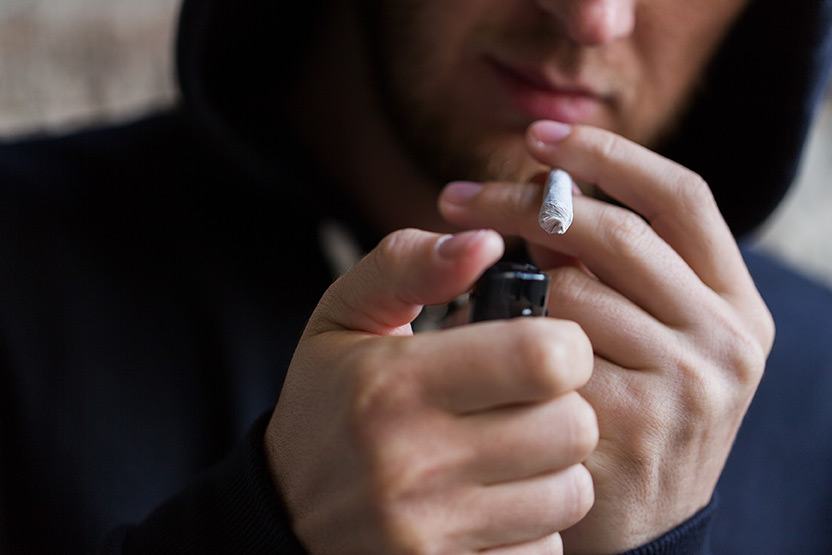

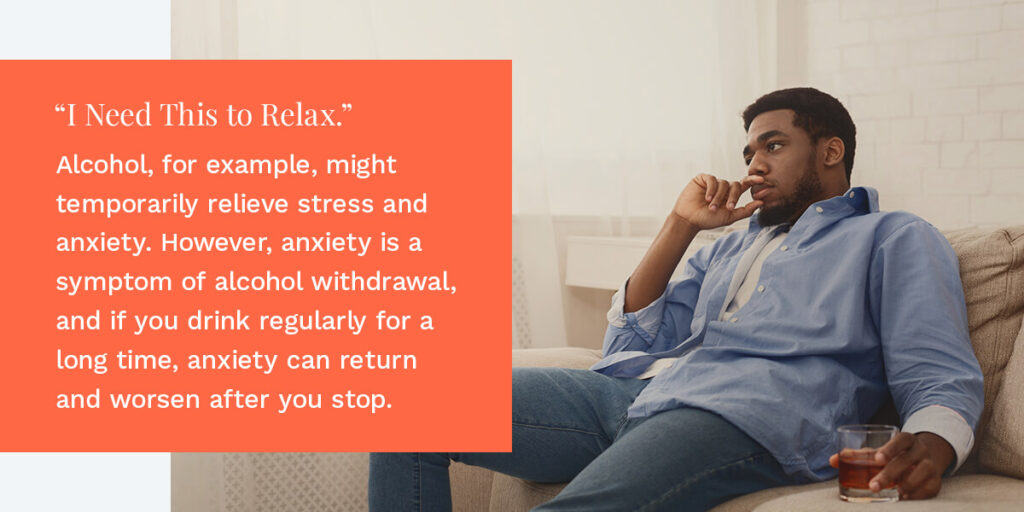 3. “I Need This to Relax.”
3. “I Need This to Relax.”